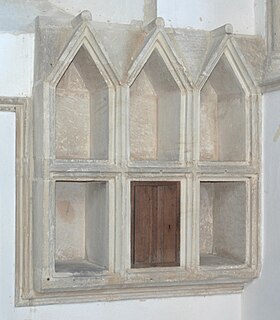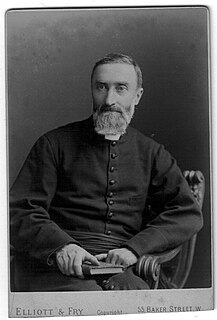
Book of Common Prayer (BCP) is the short title of a number of related prayer books used in the Anglican Communion, as well as by other Christian churches historically related to Anglicanism. The original book, published in 1549 in the reign of Edward VI, was a product of the English Reformation following the break with Rome. The work of 1549 was the first prayer book to include the complete forms of service for daily and Sunday worship in English. It contained Morning Prayer, Evening Prayer, the Litany, and Holy Communion and also the occasional services in full: the orders for Baptism, Confirmation, Marriage, "prayers to be said with the sick", and a funeral service. It also set out in full the "propers" : the introits, collects, and epistle and gospel readings for the Sunday service of Holy Communion. Old Testament and New Testament readings for daily prayer were specified in tabular format as were the Psalms; and canticles, mostly biblical, that were provided to be said or sung between the readings.

Mass is the main eucharistic liturgical service in many forms of Western Christianity. The term Mass is commonly used in the Catholic Church and the Lutheran Church, as well as in Anglican, Methodist, Western Rite Orthodox, and Old Catholic churches.

William Forbes Skene WS FRSE FSA(Scot) DCL LLD, was a Scottish lawyer, historian and antiquary.
Sexual rituals fall into two categories: culture-created, and natural behaviour, the human animal having developed sex rituals from evolutionary instincts for reproduction, which are then integrated into society, and elaborated to include aspects such as marriage rites, dances, etc. Arguably indeed, 'sex in its more ritualized and symbolic varieties...has moulded the shape of civilization'.

John Frederick Denison Maurice (1805–1872), known as F. D. Maurice, was an English Anglican theologian, a prolific author, and one of the founders of Christian socialism. Since World War II, interest in Maurice has expanded.
Ceremonial magic encompasses a wide variety of long, elaborate, and complex rituals of magic. The works included are characterized by ceremony and a myriad of necessary accessories to aid the practitioner. It can be seen as an extension of ritual magic, and in most cases synonymous with it. Popularized by the Hermetic Order of the Golden Dawn, it draws on such schools of philosophical and occult thought as Hermetic Qabalah, Enochian magic, Thelema, and the magic of various grimoires. Ceremonial magic is part of Hermeticism and Western esotericism.

The Free Church of Scotland was a Scottish denomination which was formed in 1843 by a large withdrawal from the established Church of Scotland in a schism or division known as the Disruption of 1843. In 1900 the vast majority of the Free Church of Scotland joined with the United Presbyterian Church of Scotland to form the United Free Church of Scotland. The House of Lords judged that the minority continuing after the 1900 union were entitled to all the assets. While the denomination clearly had a starting date, in their own eyes their leaders had a legitimate claim to an unbroken succession of leaders going all the way back to the Apostles.

Ritualism, in the history of Christianity, refers to an emphasis on the rituals and liturgical ceremony of the church, in particular of Holy Communion.
Dedication is the act of consecrating an altar, temple, church, or other sacred building. It also refers to the inscription of books or other artifacts when these are specifically addressed or presented to a particular person. This practice, which once was used to gain the patronage and support of the person so addressed, is now only a mark of affection or regard. In law, the word is used of the setting apart by a private owner of a road to public use.

The ceremonial use of lights occurs in liturgies of various Christian Churches, as well as in Jewish, Zoroastrian and Hindu rites and customs.

The Directory for Public Worship was a manual of directions for worship approved by an ordinance of Parliament in 1644 to replace the Book of Common Prayer.

An ambry is a recessed cabinet in the wall of a Christian church for storing sacred vessels and vestments. They are sometimes near the piscina, but more often on the opposite side. The word also seems in medieval times to be used commonly for any closed cupboard and even bookcase.

The name Agenda is given, particularly in the Lutheran Church, to the official books dealing with the forms and ceremonies of divine service.

Richard William Enraght was an Irish-born Church of England priest of the late nineteenth century. He was influenced by the Oxford Movement and was included amongst the priests commonly called "Second Generation" Anglo-Catholics.

A liturgical book, or service book, is a book published by the authority of a church body that contains the text and directions for the liturgy of its official religious services.
Frederick George Lee was a priest of the Church of England and a religious author. He founded the Order of Corporate Reunion.

"Remember the sabbath day, to keep it holy" is one of the Ten Commandments found in the Hebrew Bible.

Charles Edgar Walker Hayes is an American pop country singer. He has charted three singles on Hot Country Songs and has released two albums. Hayes has recorded for both Capitol Records and Monument Records, with his highest chart entry being "You Broke Up with Me", from his 2017 album boom.
Richard Frederick Littledale (1833–1890) was an Anglo-Irish clergyman and writer.
Thomas Leishman was a Scottish minister and liturgical scholar.













